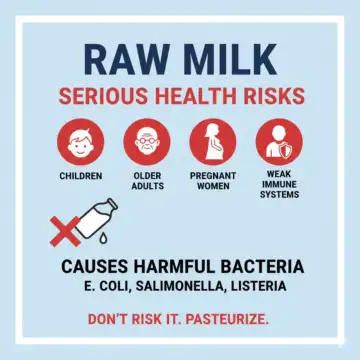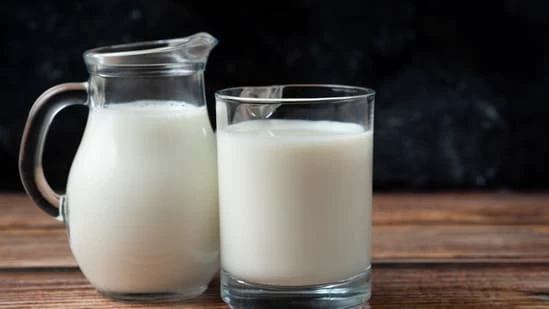A growing number of people on social media are switching to raw milk, believing it offers more nutrients, fewer allergies, and better health benefits.
But is it worth the risk?
In an interview with HT Lifestyle, Dr Sambit Bhuyan, consultant-medical gastroenterologist, Manipal Hospital Bhubaneswar, warned that raw milk carries deadly organisms, which can cause food poisoning, miscarriages, and even life-threatening illnesses, especially for kids, pregnant women, and people with weak immune systems.
The truth about raw milk
He said, “Raw milk is milk from cows, sheep, and goats that has not been pasteurised. Milk and milk products offer numerous health benefits. But raw milk carries dangerous organisms, which pose serious health risks to everyone.”
Dr Bhuyan explained that raw milk transmits harmful bacteria, posing serious health risks, including food poisoning and pregnancy complications, making it a risk not worth taking, especially for vulnerable groups.
He said: “Raw milk transmits organisms like Salmonella, E coli, Listeria, Campylobacter and TB, which often cause food poisoning. Raw milk or products made from it create dangerous health issues, mainly to children, older adults, pregnant women and people with weak immune systems, such as post-transplant, cancer and diabetes.”
“People develop symptoms like vomiting, diarrhea, abdominal pain and fever along with myalgia due to food poisoning induced by raw milk products. In pregnant women, raw milk can cause miscarriage, preterm delivery and a low birth weight baby due to transmitted Listeria,” Dr Bhuyan warned.
 The power of pasteurisation
The power of pasteurisation
According to the doctor, pasteurisation of milk kills harmful germs, retains nutritional value, and is a safe process developed by Louis Pasteur in 1864 that doesn’t cause lactose intolerance or significant nutrient loss.
“Pasteurisation is a process of heating milk or any food products at high temperature, ie at 72 degrees C for 15 seconds. This method was developed by Louis Pasteur in 1864. Pasteurisation kills harmful germs and organisms from raw milk and makes it healthier for everyone. Pasteurisation causes denaturation of proteins within raw milk, which decreases the milk allergy property for a few. The food and nutritional value of milk is retained even after pasteurisation,” he said.
“It does not cause or increase lactose intolerance. A study suggests that the heating process results in only a marginal loss of immunogenicity and heat-intolerant vitamin C in milk. After pasteurisation, milk should be stored at normal temperature to prevent the growth of organisms; therefore, it needs to be refrigerated to ensure safety. In general, raw milk is not healthy, but pasteurisation makes it safe with retained nutritional value,” Dr Bhuyan concluded.
